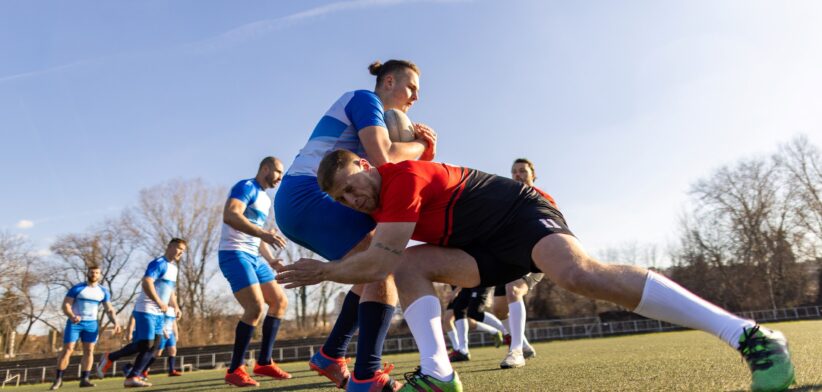Queensland rugby league legend Wally Lewis has called for a multi-million dollar investment to tackle “the only form of dementia that is preventable”.
In a National Press Club address in Canberra, Mr Lewis shared his experience of chronic traumatic encephalopathy (CET) and called on the Federal Government to invest $18 million to fund awareness and support programs.
A Dementia Australia ambassador, Mr Lewis was joined at the event by AFL Premiership player Nathan Murphy, who at 24 years of age announced he would be hanging up his boots after multiple serious concussions.
Dementia Australia said Mr Murphy’s decision came after medical advice suggesting his migraines, panic attacks and anxiety may be linked to concussions which occurred throughout his playing career.
The national peak body supporting people living with dementia said CTE was the only preventable form of dementia and some estimates suggested thousands of people were impacted.
CTE affects brain function over time and can result in changes in mood, personality, behaviour, and cognitive function.
The association said funding was required for research to better understand CTE, a condition caused by repeated traumatic brain injuries.
In his speech, Mr Lewis, aka The King in Queensland rugby league circles, asked attendees to “imagine a life where the tapestry of memories that define your very essence begins to unravel”.
“The threads of names, faces, and cherished moments slip away, leaving behind a canvas of uncertainty,” Mr Lewis said.
“I am living with the constant fear and anxiety that I’ll let people down. This is my reality and the reality for all those living with dementia. One thing we do know is that CTE is the only form of dementia that is preventable, and we only get one brain.
“My call is for the Australian Government to back this cause and provide federal funding for these initiatives that will start the change and will provide hope for the future. We owe it to our kids.”
Dementia Australia is part of the Concussion and CTE Coalition, which in its pre-Budget submission called for $18 million over three years to fund a national pilot program of support services for people impacted by CTE and a national awareness raising and education program in schools.
Dementia Australia CEO Maree McCabe said these priorities were developed as a response to recommendations from the Senate Inquiry Report Concussions and repeated head trauma in contact sports, handed down in September last year.
“Concussion and CTE is not just a sports issue. Many groups are at risk, including domestic and family violence survivors and military personnel,” Ms McCabe said.
“People impacted by CTE tell us that there isn’t enough support. We are calling for government investment to raise awareness of this important issue and support those living with probable CTE, their families and carers.”
The Concussion and CTE Coalition is made up of Dementia Australia, Brain Foundation, ConneCTErs, Associate Professor Fatima Nasrallah of the Queensland Brain Institute at The University of Queensland and Dr Rowena Mobbs of Mater Hospital Sydney.








